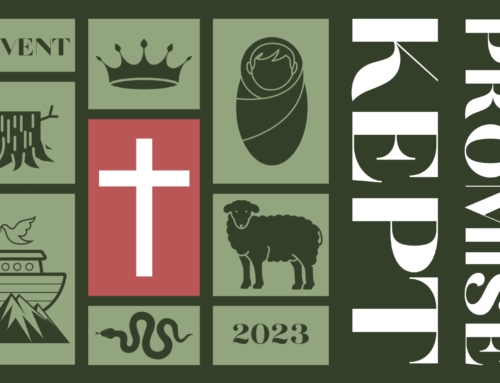The Lord’s Supper: Part One
By Pastor Josh Wamble
This past Sunday evening, we started a short series exploring what the Bible says and what Christians have thought about the Lord’s Supper throughout history. If you were not here for that, you can listen to the audio here. We looked mostly at two passages, and two aspects of the Lord’s Supper became clear during that time. First, the Lord’s Supper has a vertical dimension to it. It has something to do with our relationship with God. Second, the Lord’s Supper has a horizontal dimension to it. It has something to do with our relationship with other believers.
The Lord’s Supper Has a Vertical Dimension
When we look at Luke 22:14, 20, we see that the Lord’s Supper was anticipated (v.15). This was not a spur of the moment addition to the Passover meal that Jesus came up with on the fly. The Lord’s Supper was planned by God and implemented by Jesus at the right moment.
We also see that the Lord’s Supper is only temporary. It points to something else (Luke 22:16 and 18). Revelation 19:7-10 tells us that there will be a day when a reunion takes place between the Lord and His people. This is what the Lord’s Supper is meant to point us to. It is a reminder that a better Supper is coming—a marriage feast. Until that day, we have the Lord’s Supper together in expectation of what is to come.
The Lord’s Supper is a symbolic meal. The bread and the wine/juice point to something else. In Luke 22:19, we are told that the bread represents Jesus’s body and the wine/juice represents His blood. The bread helps us to think of Jesus’s sacrifice for us (“do this in remembrance of me”), and the wine/juice helps us to celebrate and trust in the new covenant that Jesus’s death established (“the new covenant in my blood”).
The Lord’s Supper Has a Horizontal Dimension
In Luke 22:17, we read that Jesus instructed His disciples to share the meal among themselves—with one another. There is an aspect of the Lord’s Supper that is focused on the relationship between those who are celebrating it together. In 1 Cor. 11:26, Paul tells us that every time we share this meal together, we are proclaiming something that is true. To proclaim something is to announce it or spread it’s message. In seminary, the preaching class was called “The Ministry of Proclamation.” The Lord’s Supper is a visual sermon or gospel presentation. Every time we share the Lord’s Supper, we are preaching the gospel to one another! We do so in two ways.
First, we proclaim His death to each other. We look back to what Jesus has done and how it has affected us. We remind one another that Jesus’s death is the foundation of our standing and acceptance before God. This is the very foundation of our faith and our hope. We remind one another that we are in this together. We are trusting in the same things. We are believing and following together. We can count on each other.
Second, we proclaim His coming to one another. Paul says we proclaim His death until He comes. As we see each other eat the bread and drink the wine/juice, we are helping each other and being helped to look ahead. We are reminding each other of this hope that we are moving toward. We are advancing toward holiness and righteousness and the fullness of our salvation—and we are doing so together! We are helping each other to make it. Sharing in the Lord’s Supper meal is a reminder that we are a community of faith following Jesus together!
I wonder if you have ever thought of this horizontal aspect of the Lord’s Supper. Some traditions refer to the Lord’s Supper as “communion.” It is a communion between us and God but also between us and each other. It is one of the ways God uses the church to mold His people into the image of Jesus.
The Lord’s Supper is a blessing to you and your faith as you look backward to Christ’s death and forward to His return, but it is also a way for you to encourage and strengthen the other members of our church as you proclaim these truths to your brothers and sisters. At our church, we have the Lord’s Supper on the first Sunday of each month. Sometimes it is during the morning service, and sometimes it is part of the evening service. You cannot take part in this proclamation encouraging and strengthening the church if you are not present. Would you prioritize being in attendance during these services?




